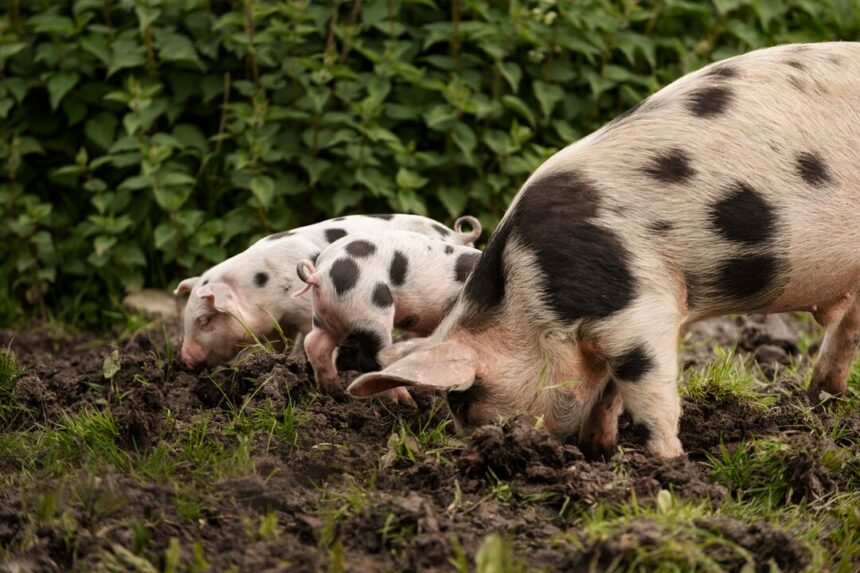Kolbroek pigs, an indigenous breed originating from South Africa, have garnered attention for their unique characteristics, adaptability, and historical significance. With their distinctive appearance and versatile nature, Kolbroek pigs offer a multitude of benefits for breeders and farmers in South Africa. Here are ten key aspects to consider when breeding and farming Kolbroek pigs in the country:
- Historical Heritage:
Kolbroek pigs have a rich historical heritage in South Africa, with roots tracing back to the indigenous Khoisan people. These pigs were traditionally kept by rural communities for their ability to thrive in harsh environments and provide a valuable source of food and income. - Distinctive Appearance:
Kolbroek pigs are known for their unique appearance, characterized by a compact build, round body, and distinctive black and white spotted coat. Their sturdy frame and muscular build make them well-suited to outdoor farming systems and extensive grazing. - Adaptability and Resilience:
One of the primary advantages of Kolbroek pigs is their adaptability to various environmental conditions. Bred for generations in South Africa’s diverse climates, these pigs exhibit resilience to heat, cold, and other environmental stressors, making them well-suited to extensive farming systems. - Foraging and Grazing Abilities:
Kolbroek pigs excel in foraging and grazing, thanks to their natural instincts and robust constitution. They have a keen sense of smell and a voracious appetite for a variety of vegetation types, allowing them to thrive on pasture and forage-based diets. - Reproduction and Fertility:
Kolbroek pigs are known for their reproductive efficiency and maternal instincts, making them an attractive option for breeding programs. Sows exhibit good mothering abilities, high conception rates, and large litter sizes, resulting in healthy piglets and increased productivity. - Meat Quality:
Kolbroek pork is prized for its excellent meat quality, characterized by a fine texture, succulent flavor, and well-marbled cuts. The breed’s natural grazing and foraging behaviors contribute to the development of flavorful, tender meat that is highly sought after by consumers and chefs. - Heritage Breed Conservation:
Kolbroek pigs play a crucial role in heritage breed conservation efforts in South Africa. As an indigenous breed with historical significance, preserving the genetic diversity and cultural heritage of Kolbroek pigs is essential for maintaining biodiversity and promoting sustainable farming practices. - Temperament and Handling:
Kolbroek pigs are known for their docile temperament and calm demeanor, making them easy to handle and manage. Their gentle nature reduces stress during handling, transportation, and breeding activities, contributing to overall herd welfare and productivity. - Genetic Selection and Improvement:
Effective genetic selection is essential for maximizing the potential of Kolbroek pig herds. Breeders focus on traits such as growth rate, carcass quality, maternal instincts, and adaptability when selecting breeding stock to improve herd performance and profitability over time. - Market Demand and Profitability:
With increasing consumer interest in sustainable and ethically produced food, the market for Kolbroek pork continues to grow in South Africa. Producers can capitalize on the breed’s unique characteristics, meat quality, and cultural heritage to meet the demand for premium pork products and achieve greater profitability in the pork industry.
Breeding and farming Kolbroek pigs in South Africa offer numerous advantages for producers seeking resilient, high-quality livestock with historical significance. By understanding the breed’s characteristics, reproductive traits, and market potential, farmers can effectively incorporate Kolbroek pigs into their operations and contribute to the preservation and promotion of South Africa’s agricultural heritage.
Join 'Farmers Mag' WhatsApp Channel
Get the latest Farming news and tips delivered straight to your WhatsApp
CLICK HERE TO JOIN






